Age and Sex Distribution of the Household Population
in Siquijor Province
(2020 Census of Population and Housing)
Based on the 2020 Census of Population and Housing (CPH), the province of Siquijor posted a total household population of 103,014. Of this total household population, 51,916 (50.4%) were males while 51,098 (49.6%) were females. (Figure 1 and Table 1.)
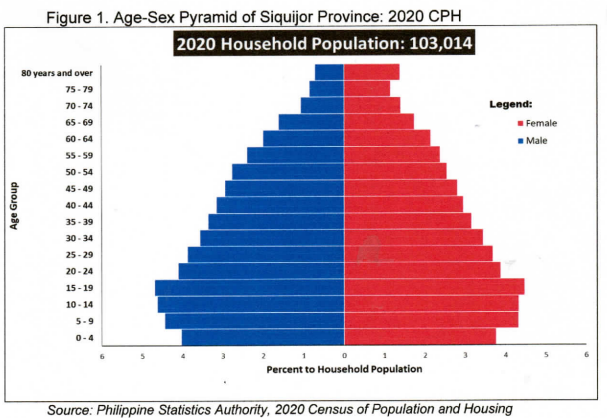
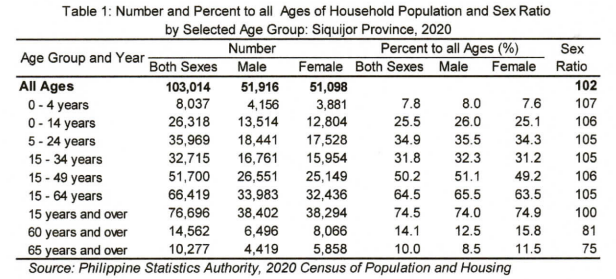
By age group, 26,318 (25.5%) were under 15 years of age (young dependents) while the youth population (15 – 34 years old) posted 32,715 (31.8%). On the other hand, persons aged 15 to 64 years (working age or economically active population) totaled 66,419 (64.5%), while those in age groups 65 years and over (old dependents) comprised the remaining 10,277 (10%). (Table 1)
Moreover, there were more males (51.2) than females (48.8%) among the 15 to 64 age group or the working age/economically active population. Meanwhile, among the 60 years and over age group or the senior citizen age group, females (55.4%) outnumbered the males (44.6 %). (Table 1)
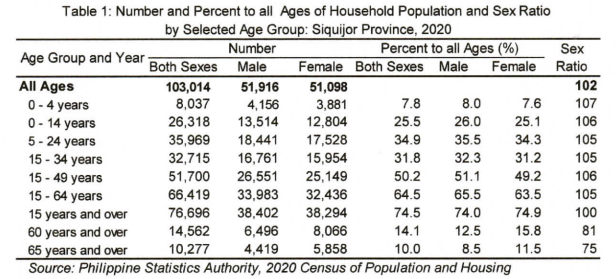
Sex Ratio
The sex ratio in Siquijor Province was computed at 102 in 2020. This suggests that there were 102 males for every 100 females in the household population. (Table 1 and Figure 2)
In 2020, children aged below 15 years had a sex ratio of 106 males per 100 females, while those aged 15 to 64 years had a sex ratio of 105 males per 100 females. Moreover, among those aged 65 years and over, the sex ratio was 75 males per 100 females. This depicts a longer life expectancy among females than males or a higher mortality rate among males than females in the older age groups. (Table 1 and Figure 2)
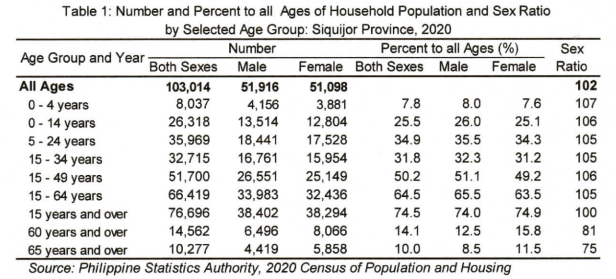
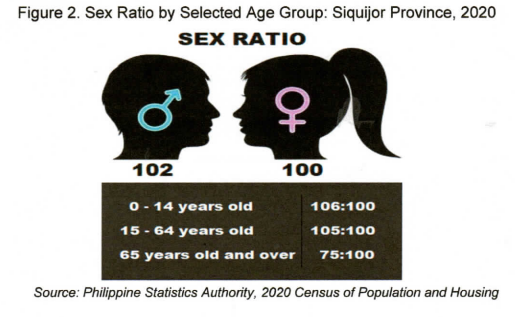
Median Age
The median age of the Siquijor Province was computed at 29.8 years, which means that half of the household population was younger than 29.8 years, while the other half is older than 29.8 years. (Figure 3)
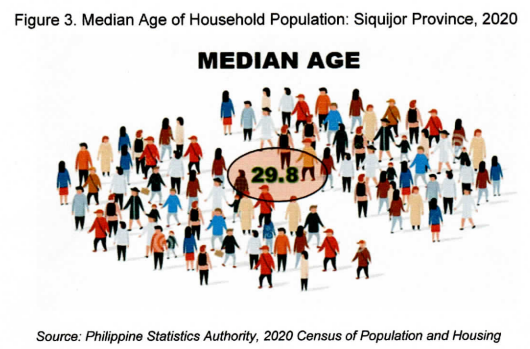
Dependency Ratio
The overall dependency ratio of Siquijor Province was computed at 55, which indicates that for every 100 working-age or economically active population, there were about 55 dependents (40 young dependents and 15 old dependents). (Table 2)

There are more males than females in children under five years old
Children below five years old comprised 7.8 percent (8,037) of the total household population. The sex ratio is at 107 males per 100 females. (Table 1 and Figure 4)
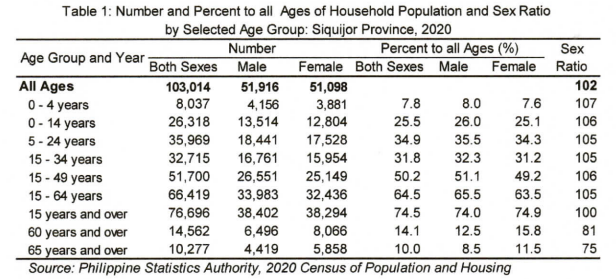
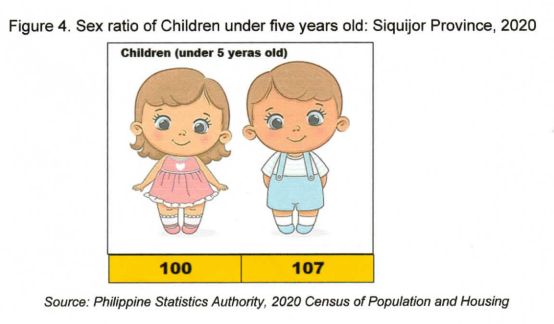
School-age Population
In 2020, the school-age population (5 to 24 years old) accounted for 35,969 (34.9%) of the total household population. (Table 1 and Figure 5)
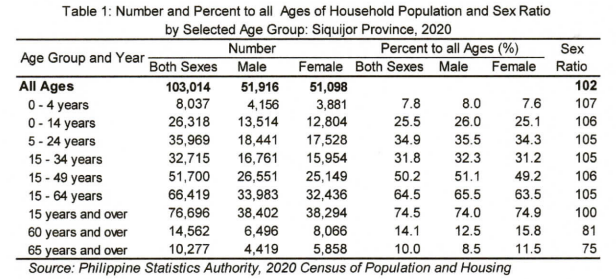
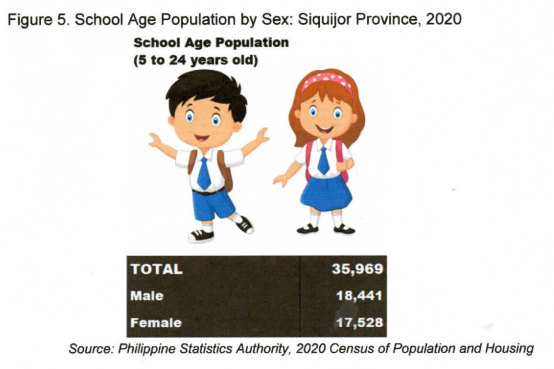
Senior Citizens among the Household Population
In the Philippines, people aged 60 years old and over are referred to as senior citizens. They made up 14.1 percent (14,562) of the household population for the province of Siquijor in 2020. There were more females (55.4%) than males (44.6%) among the senior citizens depicting a longer life expectancy among females than males or a higher mortality rate among males than females. (Table 1 and Figure 6)
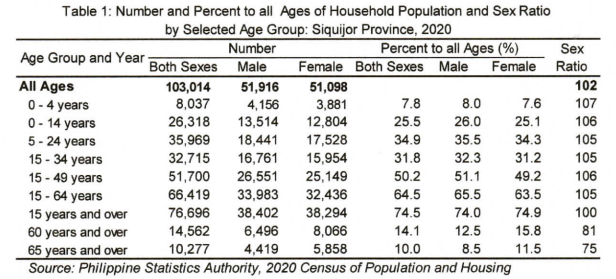
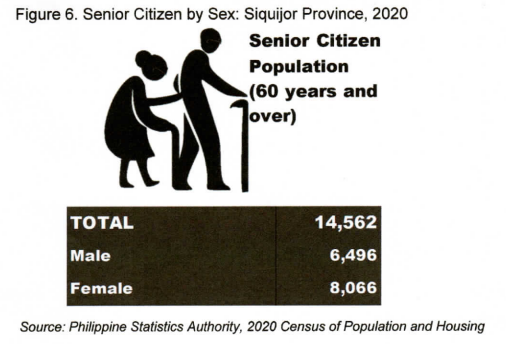
Female Population Reproductive Age
Women of reproductive age (15 to 49 years old) is about 25,149 or 49.2 percent of the 51,098 female household population in 2020. (Table 1 and Figure 7)
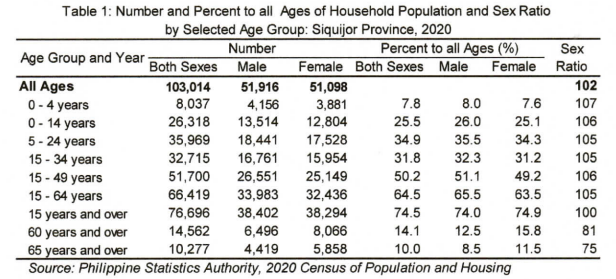
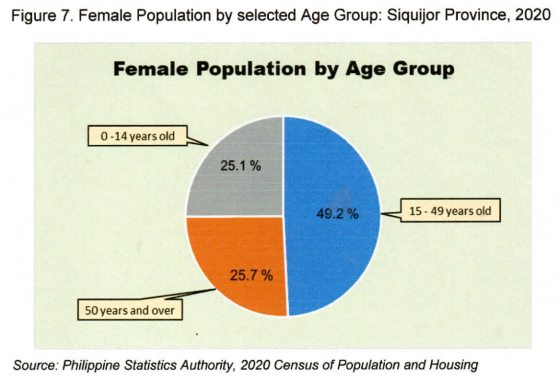
Aging Index
In the province of Siquijor, the aging index or the proportion of persons aged 60 years and over per 100 persons under the age 15 years was computed at 55.3 percent in 2020. this means that there is one person aged 60 years and over for two children under 15 years old.
(SDG.) AURELIA M. CANDA
Chief Statistical Specialist

